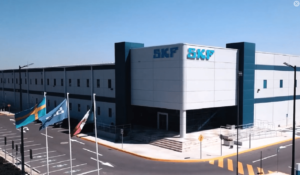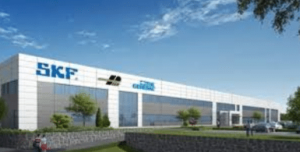
SKF bearings and FAG bearings are renowned for their commitment to producing high-quality bearings. The foundation of their product quality lies in their rigorous production processes and quality assurance measures. This article provides an in-depth analysis of the production processes of SKF and FAG bearings, offering a comprehensive comparative analysis of their product quality.
Raw Material Selection
The production process of SKF bearings and FAG bearings begins with the careful selection of raw materials. Both companies use high-quality steel and advanced alloys to ensure the bearings’ strength, durability, and resistance to wear and fatigue.
Metallurgical Analysis
Metallurgical analysis is a crucial step in the production process. SKF and FAG conduct in-depth analyses of the raw materials to determine their chemical composition and microstructure, ensuring they meet the desired specifications for bearing manufacturing.
Forging and Heat Treatment
After the metallurgical analysis, the selected materials undergo forging processes to shape the bearing components. The forged components then go through precise heat treatment to achieve the optimal combination of hardness and toughness.
Precision Machining
Both SKF and FAG utilize advanced CNC machines for precision machining of bearing components. This ensures consistent dimensions and tight tolerances, critical for bearing performance and reliability.
Surface Finishing
Surface finishing is a critical step to achieve smooth and precise surfaces on bearing components. SKF and FAG employ superfinishing techniques to minimize friction and wear, ultimately enhancing the bearings’ service life.
Assembly and Lubrication
In the assembly process, SKF and FAG carefully fit the bearing components together, ensuring proper alignment and smooth operation. The bearings are then lubricated with high-performance greases or oils, depending on the application requirements.
Quality Control and Testing
Quality control is integral to SKF and FAG’s production processes. At various stages of manufacturing, non-destructive testing, dimensional analysis, and performance testing are conducted to ensure that each bearing meets the highest quality standards.
Endurance Testing
Endurance testing involves subjecting a batch of bearings to continuous operation under challenging conditions to simulate real-world applications. This testing verifies the bearings’ durability, fatigue resistance, and overall performance.
Continuous Improvement
Both SKF bearings and FAG bearings are committed to continuous improvement in their production processes. They actively seek feedback from customers, analyze field data, and invest in research and development to enhance their bearings’ performance and quality.
Environmental Responsibility
In addition to product quality, SKF and FAG also focus on environmental responsibility. Sustainable manufacturing practices, waste reduction, and energy efficiency initiatives are integrated into their production processes.
Conclusion
The production processes of SKF bearings and FAG bearings demonstrate their unwavering commitment to product quality. From raw material selection and metallurgical analysis to precision machining, surface finishing, assembly, and rigorous testing, both companies leave no stone unturned in ensuring the highest quality standards are met. The combination of advanced technology, precision engineering, and continuous improvement efforts ensures that SKF and FAG bearings consistently deliver superior performance, endurance, and reliability in a wide range of applications. As industry leaders, SKF and FAG’s relentless pursuit of quality assurance continues to solidify their position as trusted providers of high-quality bearings in the dynamic and competitive world of bearing technology.
We support more information about Bearings. you can visit https://cmtgbearing.com. or email us info@cmtgbearing.com.


